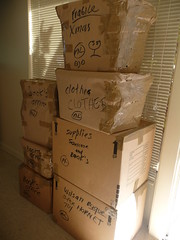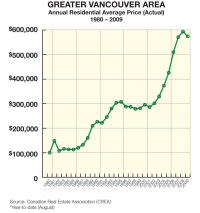
Moving your stuff from one place to another has never been simple, but as an experienced
Vancouver realtor, I have gained valuable knowledge on how to deal with this complicate issue. However, just as in any similar case, experienced people can help you with some advice that will make this task easier. In order to help you, we will publish a series of texts about all the various aspects of a relocation: how much it costs, how the insurance works, how to choose the right company, and much more.
The first article will help you to decide whether to hire a professional company or do it yourself. Among the most important issues are the amount of money, time and labor you have available from your own resources.
Definitely the best thing to start with before deciding which approach you choose, is to write down and estimate the amount of things you will be moving and then asking yourself the following questions:
- How long will it take you to pack everything?
- Can you manage the furniture?
- Have you any special, expensive or heavy items that need special handling, such as pianos or the collection of art?
- Do you have any friends or family members living nearby, who could come and help you during the weekend?
- For the moving, you will need a large car - do you trust yourself driving something like that?
- Will you manage to accomplish your move over the weekend or will you have to take some days off work?
First you need to ask yourself all these questions, and depending on the results you have got, you will be able to pick the best way of moving.
In general, there are three options:
1. Full-service moversThere are a lot of companies specializing in helping clients to move, including packing the things, loading onto the vehicle, driving it to the new place, unloading and unpacking it. Well, however costly this may be, it's the best method for people who have nobody to help them, or who just don't have enough time to do the job themselves. All the packaging material, straps and all the necessary equipment is provided as a part of the service. All that is left to you is to let them do the job.
2. Self-service moversIf you decide to go for this method, you will be expected to be more involved too. The level of service provided may be not the same in each company. On one side of the scale, we have some companies that only provide a car with a driver, and the rest of the work (packing, loading & unloading etc.) is up to you to do or organize. On the other hand, the service may include help with loading & unloading, which you will appreciate especially in regard to the heavy furniture. This method of moving is the best one for the people who want to have more control over the whole process. And of course it is much cheaper than the full-service.
3. Do-It-YourselfIf you are able to do the whole moving by yourself, you will save a lot of money. Before choosing this method, there are many aspects to be considered, like the amount of your possessions, the distance, the number of friends and relatives available to help you and other things. The do-it-yourself way is usually great if you are moving from a small home or a flat. On the other hand, when moving from a large home across a long distance, it is usually better to use some professional help. However you want to organize your moving, a crucial part of the planning is the budget. Therefore the next article will deal with the cost that’s involved with moving.
Picture: Credits to carlaarena









 Finding the suitable property
Finding the suitable property






